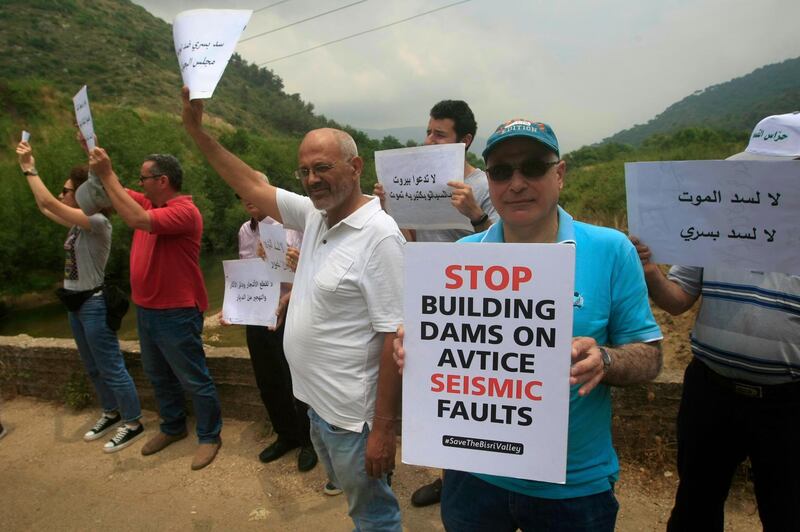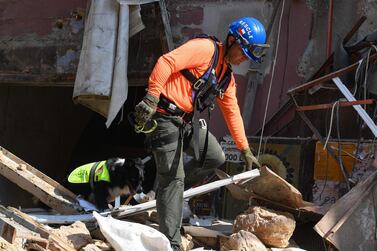The World Bank on Friday said it was cancelling a loan to fund a dam in Lebanon that environmentalists claimed could destroy a valley rich in biodiversity.
The Bisri Dam was partially suspended in June after the Washington-based development lender said it raised concerns about the project's implementation, and gave the government of Lebanon until September 4 to finalise key agreements related to operations and maintenance as well as the environment.
In a statement, the World Bank said it had notified the government that it was withdrawing its financing "due to non-completion of the tasks that are preconditions to the commencement of construction".
"The cancelled portion of the loan is $244 million and the cancellation is effective immediately," the bank said.
Located in a valley 30 kilometres south of the capital, the dam aims to supply drinking water as well as irrigation for 1.6 million residents.
Environmentalists and some farmers disputed assurances from the government and World Bank that the dam to be built on a seismic fault line does not increase the risk of earthquakes.
The World Bank began raising concerns in January about Lebanon's plans to build the large dam in the Bisri Valley, and put funding for the programme under partial suspension on June 26.
Initially approved by Lebanon's government in 2015 at a total cost of $617 million, the dam had long sparked criticism from environmental activists.
Nassib Ghobril, Chief Economist and Head of the Economic Research & Analysis Department at Byblos Bank Group said the cancellation does not bode well for future projects being financed in Lebanon by the institution.
“The cancellation is a display of the weak governance and lack of transparency in the public sector, the mismanagement of the process of the project, as well as the influence of political considerations and the apparent indifference of vast components of the government," he said.
"The bank has warned repeatedly in the past about the delays in meeting key deadlines and its standard operating procedures for releasing such loans," he continued. "The hope now is for Lebanese authorities to reach a funded agreement on a broad set of structural reforms with the International Monetary Fund, which would unlock external financing, including from the World Ban and other multilateral institutions.”
Concerns about large infrastructure projects have spiked since the massive port explosion in Beirut on August 4 that killed more than 190 people.
The World Bank committed $474 million to fund the project, of which $244 million have not yet been disbursed.
The bank initially set July 22 as the deadline for authorities to meet all requirements to proceed with the project, but later agreed to extend the deadline until September 4, given constraints imposed by the coronavirus pandemic.
The bank said the Lebanese government had failed to address questions about an ecological compensation plan and arrangements for operations and management of the dam. The contractor also had not been mobilised at the site, it said.
Certain expenditures related to fiduciary and environmental and social safeguards would remain exempt, it said.
The World Bank said it remained ready to work with Lebanese authorities to see how existing loans, including undisbursed amounts from the cancelled Bisri project, could be used most effectively to respond to the emerging needs of the Lebanese people following the port explosion.







